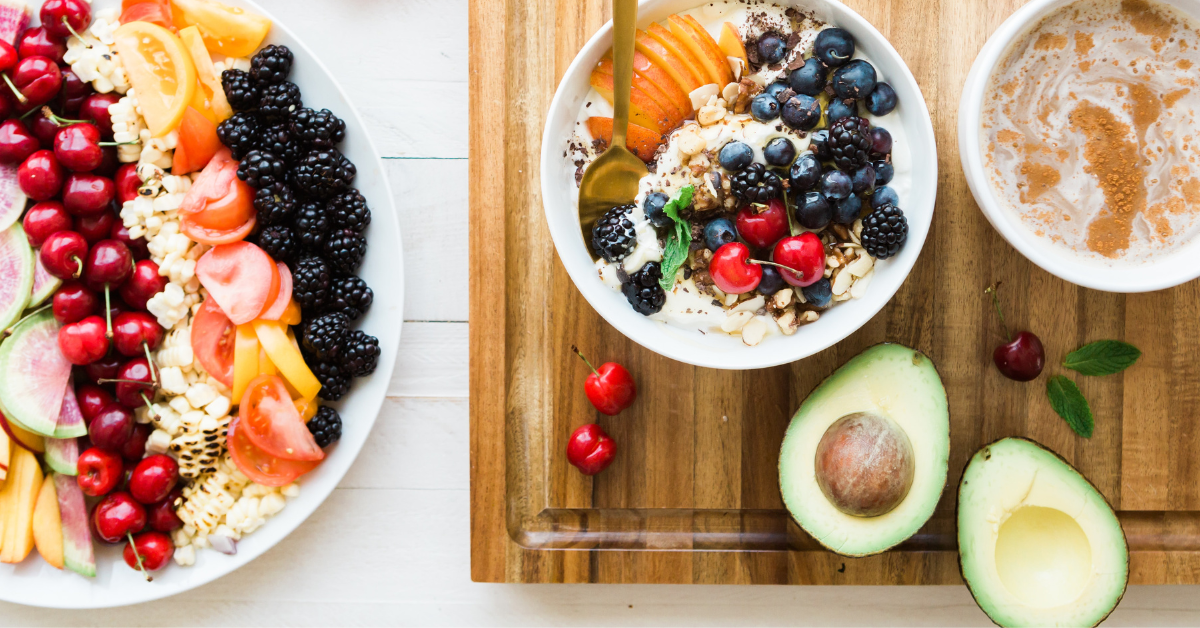It’s likely you’ve been advised at least once in your life to ‘trust your gut’ OR to ‘go with your gut feeling’. So what is it about our gut that is so linked to how we think and the choices we make? And if our gut health is so important, does that mean it’s also important to our weight loss?
What is gut health, you may ask?
Gut health refers to a balance of microorganisms (predominantly bacteria) that reside in our bowel. There are over 1000 species (currently identified) of bacteria. The ‘good’ type of bacteria typically feed on fibre rich foods (fruit, vegetables, legumes and grains). Many of the ‘bad’ types of bacteria (which cause us to become unwell) feed on a fibre poor diet (meat and fat dominant diets).
If you change your diet, then the types and concentration of good and bad bacteria will change too.
So, what is it that these good bacteria do and how does that affect our weight?
4 reasons!
1) Bacteria affect how your food is digested
The point of our gut bacteria is to metabolise, detoxify and activate components of our food so that it is absorbed and utilised by our body.
In relation to our body weight, science has found that our gut bacteria may affect how we metabolise body fat. There is a hormone in our body called FIAF (fasting-induced adipose factor), which tells our body to stop storing fat and instead to start burning it off. Certain species of gut bacteria have shown to repress the FIAF hormone (therefore increasing fat storage) whilst other species (the good, fibre loving ones) may up-regulate this hormone ( thereby decreasing our fat storage).
An interesting study conducted on overweight volunteers showed that those who were selected to take a certain strain of bacteria for three months, without changing diet or exercise, had a notable reduction in cardiovascular risk factors such as insulin resistance, blood cholesterol and fat tissue storage in comparison to the placebo taking group.
Also read: Is Bloating Normal and What Foods Help Reduce It?
2) Bacteria may affect your hunger
When we feel true physical hunger it is because our bodies intricate survival system has triggered the release of our ‘hunger’ hormones. These hormones are the ones that tell us to find food for survival. This same system also releases satiety (fullness) hormones when it senses that we have ingested adequate nutrition.
This is why studies have shown that different gut bacteria can mimic hunger and fullness hormones, thereby influencing our decisions on whether to eat, and what we ‘feel’ like eating. Afterall, if they need to eat, they need us to eat (our food is their food source). When we eat good food, we feed our good gut bacteria for longer. When we eat bad food, our good bacteria still need a fuel source, and so they send out signals telling us to eat more, leading to overeating.
3) Bacteria can affect Inflammation and your Immune system
Our gut health is strongly linked to the bacteria that reside there.
Research shows that a long term unhealthy diet (specifically one high in fat and low fibre/refined carbohydrates) feed endotoxin causing bacteria (the bad type of bacteria). This results in a much greater risk of chronic inflammation and medical conditions. These can include obesity, heart disease, type 2 diabetes and metabolic syndrome.
4) Bacteria can affect Mental and Emotional health
Good nutrition has long been known to be important for mental and emotional health. But did you know that your gut bacteria also has a serious impact on your mental well-being?
Our ‘gut’ is responsible for the production of over 80% of our serotonin supply (the brain chemical most important for mental wellness and happiness). The more good bacteria present in the gut, the greater the level of serotonin produced. So if we’re feeding our bad bacteria with bad food, our serotonin levels will suffer. And, when you’re in a down mood or depressed mindset, it’s much easier to consume unhealthy foods. These foods then feed the bad bacteria, continuing the cycle and impacting your long term health and weight.
Related: Managing Your Nutrition Over Time
So there you have it!
Nature has designed a very clever internal system. The benefits or the consequences of this system are up to you. The foods we consume will influence in a positive or negative way our gut bacteria species. AND the species in our gut can influence our digestion, our mental wellness, our food choices and our overall health.
Your gut bacteria really is what YOU eat (or at least a result of it anyway)!














